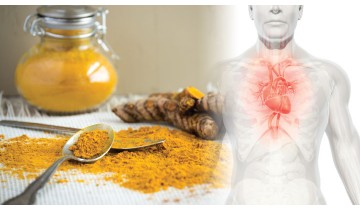
B vitamins are critical for the production of neurotransmitters in the brain.
Insufficiency is associated with cognitive decline.1-3
Folate has a number of mechanisms by which it can enhance cognitive performance. These include lowering inflammation and reducing homocysteine.1,4
Elevated homocysteine and chronic inflammation are linked to degenerative brain disorders.
Perhaps the most far-reaching implication of folate in the brain is its ability to modify gene expression.1
This means that folate plays a role in turning a gene “on” or “off.”

Cataracts cause about half of all cases of blindness worldwide.1,2
By age 80, more than half of all Americans will have cataracts, or will have undergone surgery to remove them.3
Researchers have been investigating two different but related forms of the nutrient carnosine to help slow the development of cataracts as well as improve visual performance of cataract-affected eyes.


Would you like to potentially add 9 years to your life expectancy? That's what research on the nutrient coenzyme Q10 (CoQ10) implies is possible.1
CoQ10 is well known for its heart and vascular health benefits.2 By helping the cellular powerhouses known as mitochondria burn fuel more effectively, CoQ10 is able to protect not only the heart but every cell in your body.3

One way to improve heart health is to exercise. But what if you could achieve some of the benefits of exercise without stepping on a treadmill?
According to a recent study, that dream can become a reality with a supplement: curcumin.
One reason exercise is so good for the heart is because it improves endothelial function. When researchers compared exercise to curcumin supplementation, they found that curcumin was just as effective as exercise in improving endothelial function.

In 1937, the Nobel Prize in Physiology was awarded to Albert Szent-Gyorgyi for his research on vitamin C. At the time, vitamin C was a rare commodity and could only be extracted from adrenal glands or massive amounts of orange juice.
Szent-Gyorgyi’s discoveries helped launch an onslaught of vitamin C research, especially into its ability to enhance immune function.
The human body does not produce vitamin C. It must be obtained from outside-the-body sources. Water-soluble vitamin C is quickly excreted.1 That’s why it makes sense to supplement daily with vitamin C to ensure the body has the protection it needs.

Young people’s skin naturally contains ceramides that produce a moist, plump, wrinkle-free appearance.
Oral ceramides have grown in popularity because people feel the moist suppleness of youthful skin return within a short time after taking one small capsule each day.
Clinical studies have shown that an oral phytoceramide dramatically hydrates, smooths, and rejuvenates aging and wrinkled skin.

The symptoms of advanced heart failure are debilitating.
Any kind of exertion results in rapid onset of fatigue and shortness of breath. Even simple tasks like washing the dishes or walking a block can leave you exhausted.
Today’s heart-failure patients are prescribed multiple drugs that yield important benefits. Yet as their heart deteriorates, they are often restricted to a bed, couch, or wheelchair.
Americans are living longer and surviving early-life cardiac events via improvements in prevention and treatment. These include stenting procedures to open blocked coronary arteries, along with greater use of blood tests to identify risk factors before acute heart attack manifests.

Common pain medications are more dangerous than originally thought.
A recent study showed pain-relieving drugs taken for as little as one to seven days increase risk of heart attack by 48% for those taking ibuprofen (Motrin® or Advil®). This same study found that naproxen (Aleve®) users suffered 53% more heart attacks.1
Those who chronically use NSAID drugs like ibuprofen increase their risk of kidney impairment by 32%.2
In their search for natural compounds to extend the human lifespan, scientists have focused on ways to activate an enzyme called AMPK.
AMPK is found inside every cell and serves as a master energy sensor. Its activity level influences body fat composition and how long you’ll live.
During their investigations, scientists discovered that boosting AMPK resulted in an unexpected benefit: the reduction of abdominal fat.


Social Login